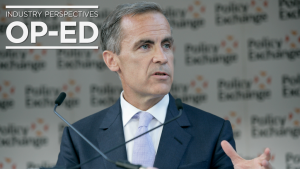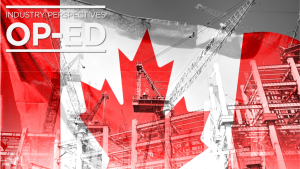The City of Victoria has decided to jump the gun when it comes to reaching greenhouse gas emission targets for new builds.
On Aug. 8, the city announced all new construction will have to meet a zero-carbon standard by July 2025.
This follows the city’s declaration in March 2019 of a “climate emergency” resulting in the plan to switch to 100 per cent renewable energy by 2050.
To achieve zero-carbon in 2025, new structures cannot use fuels such natural gas, fuel oil or propane.
The city says the new standard is about five years ahead of anticipated provincial requirements tied to the BC Energy Step Code, which is an option within the BC Building Code.
The step code’s requirements go beyond the Building Code and the intent is to get builders to voluntarily achieve high levels of energy efficiency.
The CEO of the Vancouver Island Construction Association worries Victoria’s timeline is too abbreviated to give industry a chance to plan and prepare.
“It’s overkill for what it’s trying to achieve,” says Rory Kulmala.
The philosophy of tackling climate change quickly, rather than practically, seems to be permeating levels of government that usually don’t address such issues.
“Should we put so much effort into this, given it’s a provincial matter?” Kulmala asks.
While he doesn’t dispute that climate change is occurring, other, more pressing needs, like affordable housing and the growing number of homeless, are being shunted aside.
Laura Berndt is the City of Victoria’s manager of energy and climate action and she says there was an engagement process with the local construction sector.
“The industry generally gave support,” she says.
While Kulmala says industry appreciates that it was consulted, builders’ concerns (i.e. costs, timeline) were not considered.
“The boxes were already checked,” he says of what seems to be a fait accompli.
Berndt maintains getting to zero-carbon shouldn’t be difficult for new builds.
“It’s much simpler in a new design than retrofitting,” she says.
Heating and cooling options include heat pumps powered by electricity along with solar systems.
New builds shouldn’t incur more than two per cent greater costs, she adds. And there could be up to seven per cent operational savings.
The great thing about heat pumps is that they’re four times more efficient than baseboards, Berndt says
But Kulmala wonders if BC Hydro will be able to handle the growing demands on its electrical grid.
Berndt isn’t fretting.
“BC Hydro has indicated there’s no concern on their end beyond 2030,” she says.











Recent Comments
comments for this post are closed